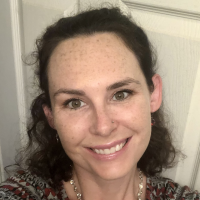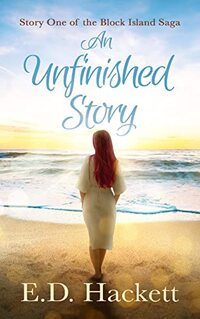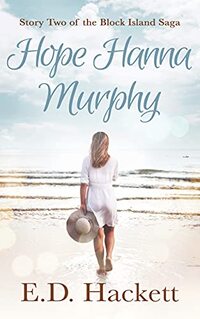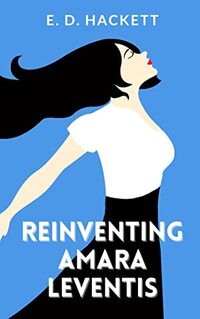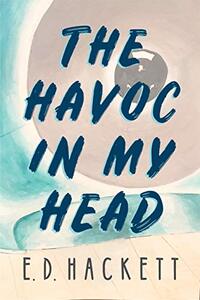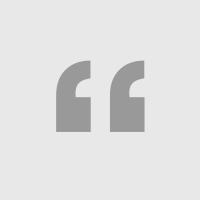What is your most cherished childhood memory?
That is tough to narrow down because I grew up with a large family and what felt like a million cousins. I would say, playing with cousins at my grandparent’s house. Whether it was inside or outside, our imagination always ran wild. Being an only child, my cousins and the memories we shared are held closely in my heart.
Do you remember the first romance book you read?
Gosh, I actually don’t. I was always a big fan of romantic comedies and loved reading books like Bridget Jones’s Diary.
At what age did you begin writing your first book?
I wrote my first short story in first grade, but I don’t think that counts since it’s probably in a landfill somewhere. I started writing a novel when I was thirty-seven.
What inspired you to start writing uplifting women's fiction? In what ways do you think your book will inspire all the women out there?
Life is hard, right? And we all have a story to tell. I write about universal issues women experience, but my books always have happy endings. I write women’s fiction with romantic elements, and my themes revolve around self-love, self-acceptance, and family.
How has your childhood helped you boost your imagination?
When I was about seven, I got a spy kit, and my friends and I would roam the neighborhood, spying on the surrounding homes and solving pretend mysteries.
What was your reaction when you received the first review for your book, "The Havoc in My Head"?
The Havoc in My Head was an incredibly personal novel because I wrote it from my own experiences. I had been diagnosed with a tumor, and I kept a journal to help process the sequence of events. Once I was in the holding stage after surgery, I sat at the computer and poured out my story as Ashley. That first review was terrifying because of my vulnerability. I poured my heart, soul, and tears into that book, and I was thrilled that people found it moving and inspirational. I needed to write that novel to give a voice to all the men and women with pituitary tumors.
How did you decide upon the setting of your novel, Hope Hanna Murphy in a small town?
Block Island is a tiny island off the coast of Rhode Island, and being a New Englander, I had been there a few times. My mother lived there for a summer in her friend’s family-owned bed and breakfast, so her experience inspired me to create a story about a newcomer immersing herself in the island's culture while living at a bed and breakfast.
Who inspired the character of Joanie Wilson in "An Unfinished Story"?
My husband, actually. He’s been at the same job for many years, and sometimes you feel like the redundancy of life is comforting, but you really need a change. Joanie needed to break free from her 9-5 and experience life a little, so I sent her to Block Island for the summer.
How many books do you plan to write in The Block Island Saga women’s fiction series?
Right now, there are two books. Carly and Joanie are the main female characters. Joanie’s sister, Jackie, is a different type of woman, but she, too, is tied to the inn. The third and last book of the series will be about Jackie’s transformation during the early years of motherhood.
What challenges did you face while writing your first book?
Ha! I had no idea what I was doing. Nothing. I sat down one day and decided to write a book. I didn’t know where to go for guidance, how to find Facebook groups that could help me, or what even made a “good” book. I am 100% self-published, and that first book was such a struggle. I’m proud of An Unfinished Story, but knowing what I know now, the book would be completely different if I could do it all over again. I was so proud of that novel and all I had accomplished, but looking back, I know it could be a million times better. Thankfully, with every book I write, my craft, understanding, internal and external arcs, and pacing improve.
Which one do you prefer: writing a series or a standalone novel? Why?
For sure, standalones. I primarily write for myself, although I am well aware that series are what makes you money. Random things inspire me, and I never know when that inspiration will hit. I need to be available to jump on it, and having that pressure to stay within a series is too difficult for my creativity.
What do you do when you're really passionate about something and work hard for it, but your natural skills (like creating art) don't match your passion? Do you go on a career path that suits your passion, or your natural skills?
You learn how to turn your passion into natural skills. You take classes, seminars, and free or paid courses, read books, listen to podcasts, and ask questions. I believe that whatever weakness you have within your passion can be improved with effort and a willingness to learn.
How does writing make you feel? When you're not writing, what does a normal day for you look like?
I love writing. It’s what keeps me going. Even when I get one or two-star reviews, as much as it’s like a knife ripping my heart into shreds, I always look at it objectively to create a better product. I am blessed only to work part-time, so I have two to three days to do all things writing-related. I have a hard time separating my time, so I tend to think about writing whenever I have downtime throughout the week.
What is the sweetest fan-mail that you have ever received?
I can’t think of anything in particular, but I love when my newsletter subscribers send me emails or messages on social media. I love hearing from them and building a relationship. You can find me on Facebook, Instagram, and Goodreads.
How has your experience of being associated with AllAuthor been?
It’s been a great experience. I love all the marketing perks of creating banners and social media graphics and the warm and inviting community within the program.

